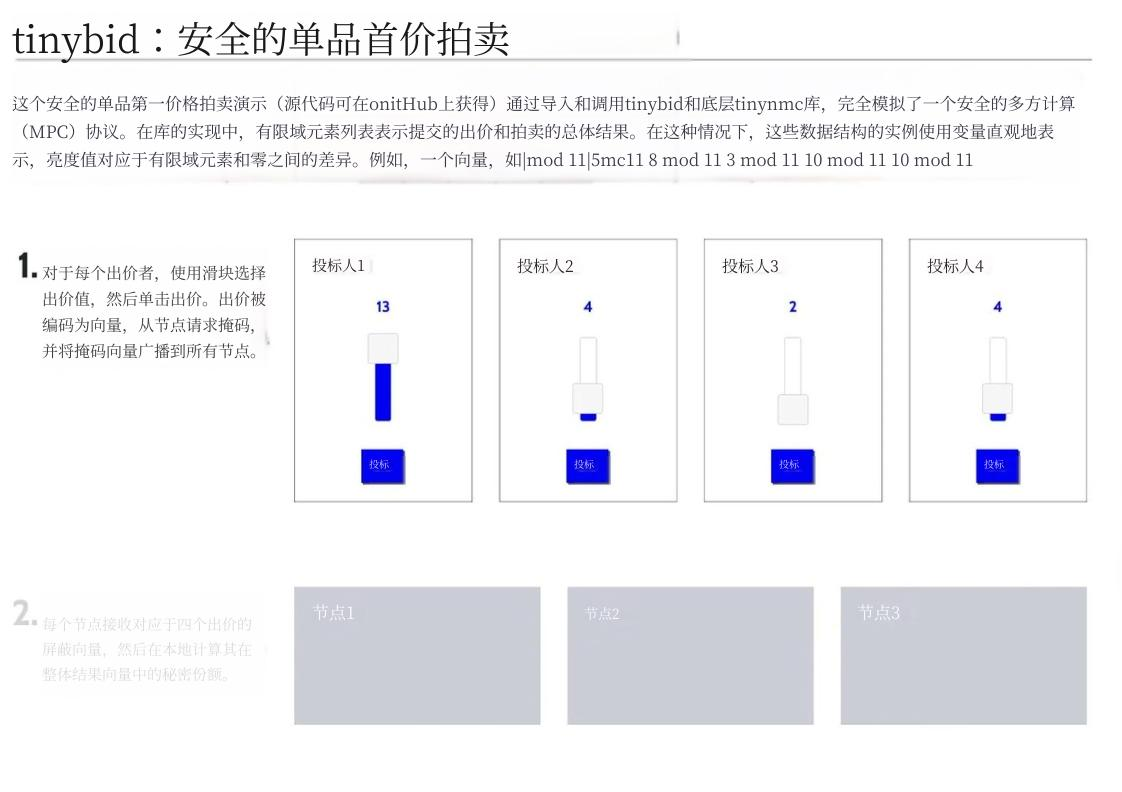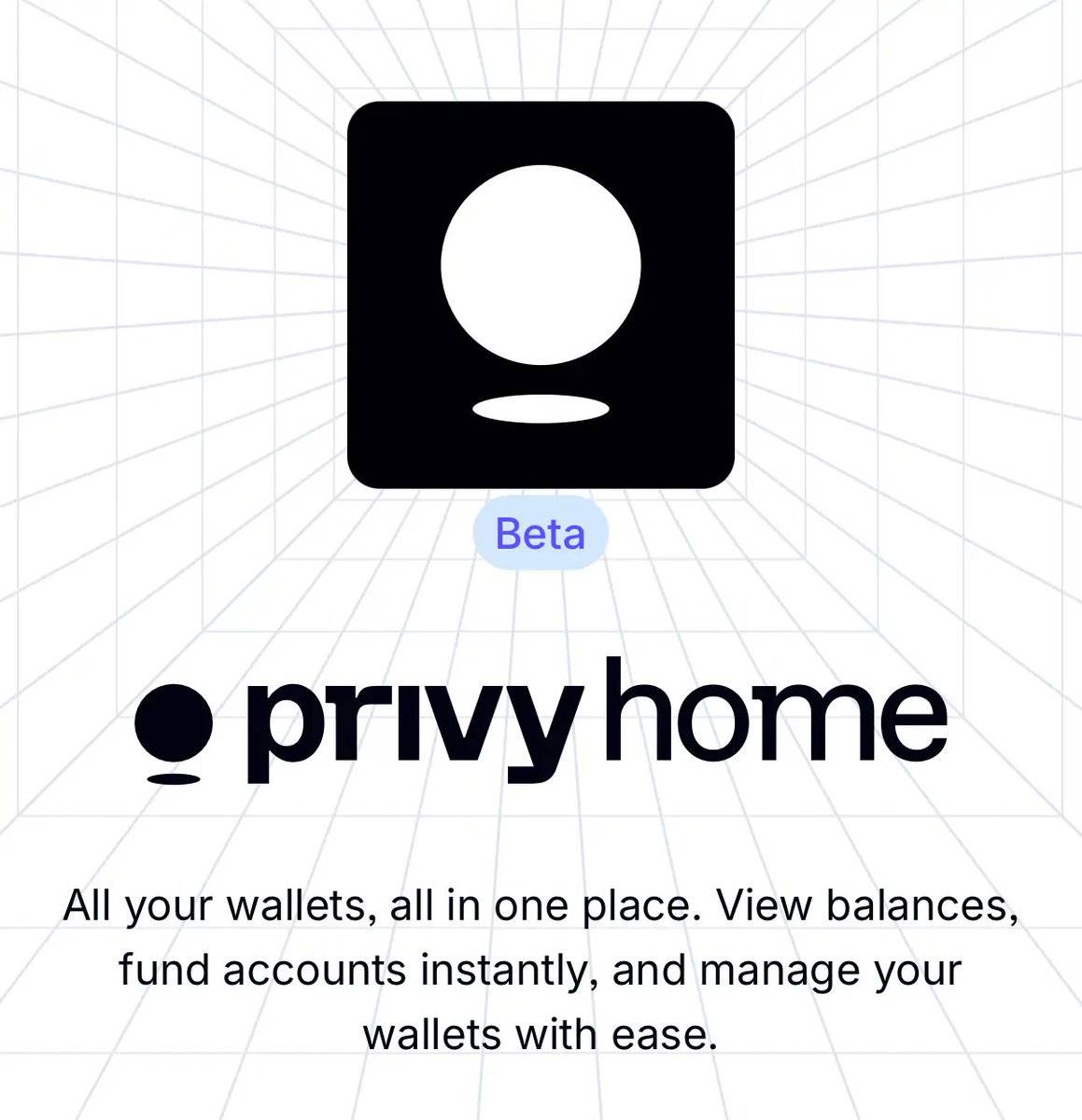Author: blocmates.
TechFlow by: techFlow
Original title: In the world of encryption, betting on privacy is betting on freedom
If history is any guide, freedom always finds a way to prevail. And in this area, betting on privacy is ultimately a bet on freedom.
Hey, let me tell you, with ZachXBT-level on-chain sleuthing (and a bit of patience), crypto transactions can be traced — but you already knew that, didn’t you?
Today, we can find out whether it's your 78-year-old grandmother who's emptying your wallet or a hacker group linked to North Korea that's compromising every protocol.

Yes, these so-called “bad” cases do exist, but they only occur because on-chain activity is publicly visible to everyone. Surprisingly, public blockchain ledgers are indeed public.
Encryption and Privacy
Perhaps today’s young people don’t understand it yet, but veteran players (Uncs) know that the journey of Bitcoin and the entire cryptocurrency today began with the vision of the Cypherpunks - to build an open society based on privacy.
It is this concept that gave birth to David Chaum’s privacy digital currency Digicash (based on blind signature technology) and Wei Dai’s anonymous decentralized payment system b-money (sounds like a rapper’s name, right?).
Satoshi Nakamoto went a step further and built a degree of privacy into the fully transparent ledger. Bitcoin’s design relies on pseudonymous addresses and cryptographic hashes, rather than real names or identities, to create a false sense of anonymity.
However, this illusion of anonymity didn’t last long. With the rise of smart contracts, attention gradually shifted from privacy to on-chain programmability.
Today, as cryptocurrency adoption accelerates again, we’re back to where it all began: the first principle of privacy.
Privacy is becoming an important topic in the crypto space, extending beyond sending and receiving funds on public blockchains to privacy protection for on-chain applications.
In today’s post, we’ll explore what privacy means in crypto, its various aspects, products built around privacy, areas to watch, and our thoughts on the future of crypto privacy.
Fasten your seat belts and get ready to go!
What does privacy in cryptocurrency actually mean?
The best way to understand privacy is through the lens of traditional finance (TradFi).
In traditional finance, privacy means a simple thing: personal data is protected from the public and visible only to authorized entities. This includes users’ personal information such as biometric data, transaction history, account balances, etc.
When we bring this concept to the crypto world, the core of privacy lies in protecting personal data in on-chain transactions. True privacy means that only the user or the designated recipient as an authorized entity can view or understand their own data.
In the crypto world, people often confuse privacy with anonymity. While the culture of anonymity stems from the concept of privacy, the two are technically different.

For example, privacy focuses on hiding the details of a transaction, such as the amount traded from one person to another, the counterparty, and other information; whereas anonymity focuses more on hiding the identity of the users involved in the transaction.
An example of a clear distinction between privacy and anonymity is Zcash and Monero. The former relies primarily on cryptography, using zk-SNARKs (zero-knowledge succinct non-interactive argument of knowledge) to conceal transaction amounts, while the latter pseudo-anonymizes user identities through stealth addresses and ring signatures.
However, for the purposes of this article, we consider privacy as a holistic phenomenon that includes anonymity.
Why is privacy an important issue in the crypto space?
As mentioned earlier, the foundation of the crypto industry stems from the cypherpunk spirit, which is the pursuit of privacy and decentralization in order to achieve freedom from state-level control.
However, with the rapid expansion of private surveillance companies and their strong influence in the financial sector, coupled with concerns about data abuse brought about by AI technology, the alarm bells are ringing louder than ever.

Without privacy, data on the blockchain could reveal users’ spending habits, wealth distribution, political donations, counterparty relationships, etc. If this data falls into the wrong hands, it could be used for extreme control or exploitation.
Another reason why privacy is crucial in crypto is that without privacy technologies, cryptocurrencies cannot achieve true censorship resistance. Privacy protects individuals and organizations from coercion, enabling truly permissionless participation in on-chain financial systems.
Furthermore, privacy ensures the safety of users in real life and their assets on the blockchain. This is especially true in public transaction graphs, where high-value targets are vulnerable to hacking, extortion, and even physical threats—many of which have occurred recently.
Privacy-Enhancing Technologies (PETs)
Privacy-enhancing technologies can be implemented in a variety of ways, each designed for specific use cases, but their ultimate goal is the same: to provide privacy and security to end users.
Different technical approaches have their own advantages, disadvantages, and scopes of application. Below, we will introduce several major privacy-enhancing technologies and their working principles in non-technical terms.
Zero-Knowledge Proofs (ZK)
The core of this technology is what the name suggests - proving that something is true without revealing its underlying details or data.
Zero-knowledge proofs involve two key players:
Prover: Proves that a statement is true.
Verifier: Confirms the authenticity of claims without access to the underlying data.
As a privacy-enhancing technology in the cryptography field, zero-knowledge proofs come in two main forms:
zkSNARKs (Zero-Knowledge Succinct Non-Interactive Arguments of Knowledge)
zkSTARKs (Zero-Knowledge Scalable Transparent Arguments of Knowledge)
Zero-knowledge proof supports a variety of privacy protection application scenarios, including but not limited to:
Confidential transactions: Hide transaction amounts and protect financial privacy.
Proof of Assets: Prove solvency without exposing addresses or sensitive data.
Privacy-preserving authentication: Applicable to decentralized identity systems (DID).
Private smart contracts: Enable privacy-preserving on-chain contract interactions.
Ring Signatures and Ring Confidential Transactions: A Strong Backing for Anonymity
If you've heard of privacy coins with built-in or default privacy features, most of them use ring signature technology. A prime example is Monero, a cryptocurrency known as the "old-school player in the privacy coin world."
Ring signatures work by allowing users to sign transactions within a group without revealing the identity of the specific signer. By obfuscating the transaction source, ring signatures effectively hide the sender's identity.
This technology is particularly useful for anonymity, enabling users to conduct transactions on-chain without having to worry about on-chain analysts like ZachXBT tracing their identities.
From this perspective, it’s easy to understand why Monero faces so many compliance challenges, such as being delisted from exchanges or encountering other regulatory issues.
In contrast, Zcash offers both transparent addresses (t-addresses) and privacy-preserving addresses (z-addresses). Centralized exchanges can choose to only support fully transparent ZEC transactions to meet regulatory compliance requirements.
Fully-Homomorphic Encryption (FHE): The Ultimate Weapon for Privacy Protection
Remember those secret notes you passed around in school? If you used a coded mix of letters and numbers to send a message that only your friend could decrypt, you've already encountered the concept of fully homomorphic encryption.
FHE is a cryptographic privacy-enhancing technique that allows computation to be performed on encrypted data without decrypting it. This means users can securely transmit sensitive information without worrying about the data being viewed by a validator.
Although FHE is more inclined towards privacy protection rather than solving the anonymity problem, it is undoubtedly one of the most powerful technologies for on-chain privacy protection.
Trusted Execution Environments (TEEs)
If you are a regular reader of blocmates, you may already be familiar with TEEs. If you need to, you can review our previous article that specifically discussed TEEs.
Simply put, a Trusted Execution Environment (TEE) is a hardware-based privacy-enhancing technology (PET) that protects the confidentiality and integrity of data within a secure area (also known as a secure enclave) within a processor or network using cryptographic keys.
A common example is the facial recognition feature on smartphones. When you set up facial recognition, the device captures your facial features through the camera, encrypts the data, and securely transmits it to the TEE for processing. The captured biometric data never leaves the TEE without protection.
Within the TEE, raw facial data is converted into a template, a mathematical representation of your unique facial features, and securely stored in a secure enclave for future authentication.
Multi-Party Computation (MPC)
In the field of encryption, certain activities require collaborative computing, and multi-party computing (MPC) is a cryptographic privacy-enhancing technology designed specifically for such scenarios.
For example:
An artificial intelligence product that relies on multiple AI inferences to optimize output.
A decentralized autonomous organization (DAO) conducts governance voting without making individual decisions public.
An on-chain auction, such as Nillion’s pilot case.
MPC allows multiple parties to jointly compute a function (such as signing a transaction or verifying balances) without revealing their inputs. This technique ensures the privacy of all parties' data while achieving the goal of collaborative computing.

In addition to the privacy-enhancing technologies (PETs) we’ve already mentioned, there are other techniques, such as coin mixers, homomorphic encryption, and composable privacy, which combine multiple privacy tools to provide even stronger protection.
In the encryption field, some projects focus on directly developing products based on these cryptographic technologies, while others are committed to building the underlying privacy infrastructure that supports encryption applications.
Key projects building privacy infrastructure
In the crypto space, privacy protection isn't a one-size-fits-all solution. Different projects and teams typically focus on specific aspects of PETs to support specific use cases and needs.
Here are some projects worth watching in the privacy infrastructure space.
Nillion
We have previously discussed Nillion's technology and its application scenarios in detail. If you want to learn more, you can refer to the relevant articles.
Simply put, @nillion's infrastructure is focused on enabling decentralized trust for sensitive data.
Nillion's core technology, "Blind Computer," protects sensitive data through a variety of privacy-enhancing techniques (PETs), including:
Multi-party computation (MPC): used for its NilDB database.
Trusted Execution Environments (TEEs): used for AI inference (such as NilAI and NilCC).
In addition, Nillion has developed several innovative consumer applications based on its infrastructure, which we will detail in the following sections.
Succinct
@SuccinctLabs' airdrop event has made some people happy and others disappointed, but the technology itself is definitely worth paying attention to.
Succinct Labs is dedicated to promoting zero-knowledge proofs (ZK Proofs) through its technology, building a technical framework that can verify any software. While the technology isn't entirely privacy-focused, its flagship product, the SP1 ZK Virtual Machine, can be used to provide client-side privacy protections. For example, in the case of Hibachi, the public order flow is hidden, but the central operator (Hibachi) remains fully visible.
Zama
@zama_fhe is a leader in technologies based on fully homomorphic encryption (FHE) to support the development of confidential applications.
Zama has built a technology that supports confidential blockchain protocols and can be integrated with Solidity-based networks to enable the following privacy applications:
Privacy-based decentralized exchanges (DEX) are used for token swaps.
Confidential Loan Agreement.
Asset tokenization with built-in privacy features.
Zcash
Frankly, Mert could be in the running for KoL (Knowledge Leader) of the Year for his successful efforts promoting @Zcash (ZEC).
As an OG project in the privacy field, Zcash is a pioneer in using zero-knowledge encryption (ZK Encryption) for peer-to-peer private payments.
Zcash utilizes zkSNARKs technology to enable optionally transparent private transactions. While the technology may appear relatively simple, combined with its token economics modeled after Bitcoin, it's easy to see why it's become a viable alternative to Bitcoin, particularly among those who still believe in the cypherpunk spirit, amidst a resurgence in demand for privacy.
Monero
Besides attracting a fervent following for its token (XMR), @monero is also a privacy technology project worth keeping an eye on.
Monero achieves complete transaction privacy through three cryptographic techniques:
Ring Signatures: Hide the identity of the real sender by mixing the real sender's signature with a set of disguised signatures extracted from the blockchain.
Stealth Addresses: Generate a unique one-time public key address for each incoming transaction, preventing any connection between the receiving wallet and the payment.
Ring Confidential Transactions (RingCT): Utilizes cryptographic commitments and range proofs to hide transaction amounts while allowing the network to verify that inputs equal outputs, ensuring that no tokens are created out of thin air.
Unlike Zcash, Monero’s privacy feature is not optional but mandatory. This means that all Monero transactions are completely hidden, and there is no concept of “selective privacy” or “shielded transactions”.
However, this enforced privacy has also sparked hostility from regulators, leading to Monero being delisted from many compliant centralized exchanges.
Arcium
Remember when we mentioned that some products understand that privacy isn’t a one-size-fits-all approach, especially at the infrastructure level?
Yes, @Arcium is a great example.
Arcium is a multi-party computation network with multiple protocols built on top, including:
Cerberus Protocol: A general-purpose protocol with a unique security model.
Cerberus uses a "dishonest majority" trust model with cheating detection and a recognizable abort mechanism.
This means that as long as at least one node is honest, privacy is guaranteed.
If a node is found to be dishonest, it will be identified, kicked out of the network, and punished (stake slashed).
It’s worth noting that protocols like Cerberus typically run under an “honest majority” trust model, requiring 51% or more of the nodes to be honest, while Cerberus’s model is more flexible and reliable.
Manticore Protocol: Designed specifically to support AI use cases.
Although Manticore's security assumptions are not as unique and powerful as Cerberus's, they still play an important role in specific scenarios.
Manticore is suitable for permissioned environments and supports AI training in a trusted environment to meet specific needs.
Similar to Nillion, Arcium's technology has already enabled some impressive consumer applications, which we will explore further in subsequent sections.
Core consumer projects driven by privacy technology
The charm of encrypted privacy is that we don’t need to talk about those complex technical backends in the abstract, especially because we are not able to directly "play" with these underlying technologies like developers.
But the end product—the consumer products built on top of this infrastructure—is something we can experience directly. Here are some applications built on privacy technologies:
Hibachi: Privacy-Enabled Perpetual Contract Transactions
Not everyone wants their positions or forced liquidation records to be made public.
If you remember the incident with James Wynn (whether he was a pawn in a larger conspiracy or it was real), where he was “hunted” and liquidated due to his public positions on Hyperliquid, this situation shows that privacy is indeed necessary when trading on-chain perpetual contracts.
@hibachi_xyz is solving this problem by using Succinct's zero-knowledge proof technology (SP-1) and Celestia's Data Availability (DA). It adopts a novel architecture that merges on-chain and off-chain components, with Succinct verifying the central limit order books (CLOBs) in Celestia's Blob data.
As a privacy application, Hibachi also optimizes transaction execution speed, with latency as low as 5 milliseconds. No tokens have been issued yet, so this is a project worth keeping an eye on.
NilGPT: Privacy-Enabling AI Chatbots
To be honest, sometimes AI can feel a bit creepy, especially when it refers to itself using personal pronouns.
However, AI technology itself is really cool, especially the various innovative attempts people have made on prompt words.
However, many people overshare when interacting with AI chatbots, forgetting that these inferences may be hidden behind the prying eyes of centralized software, such as ChatGPT, Gemini, and even Grok, which are built on such a foundation.

@nilgpt_ is a privacy-focused AI chatbot built on Nillion's confidential computing infrastructure, designed to ensure users' conversations and data are secure without collecting or exposing personal information.
NilGPT utilizes Nillion’s Blind Compute layer to encrypt and process data on distributed nodes, ensuring that no single entity can access plaintext input or output data, thereby achieving true privacy protection.
Railgun: An on-chain ecosystem based on privacy technology
If you’re looking to achieve anonymity on the blockchain, @RAILGUN_Project is a project worth keeping an eye on (quite a bit of a aside, this is a privacy solution backed by Vitalik).
Railgun is an on-chain ecosystem based on zero-knowledge (ZK) privacy. As a smart contract system adapted to Ethereum-compatible chains, Railgun allows users to conduct private transactions and DeFi interactions without sacrificing security and composability.
Railgun is fully decentralized and governed by the Railgun DAO. It uses zk-SNARKs technology to implement on-chain encrypted balances, transactions, and smart contract execution, and supports multiple chains including Ethereum, Polygon, BSC, and Arbitrum.
It’s important to note that unlike traditional mixers, Railgun provides complete anonymity through zero-knowledge cryptography while seamlessly integrating with existing decentralized applications (dApps) and liquidity protocols.
Privy Home: Wallet Infrastructure
Honestly, Privy is one of the most relevant products in the crypto space. Its product, Privy Home, is a secure control layer and unified management hub for managing embedded wallets in crypto applications. Built by @privy_io, Privy Home serves as the wallet infrastructure that powers the on-chain experience, allowing users to easily and securely manage multiple wallets and applications.

Privy enables users to track, manage, and oversee assets across multiple applications on a single platform. Through key sharding and trusted execution environments (TEEs) for security, Privy offers enhanced self-custody and interoperability, making wallet management more convenient while avoiding exposing keys to applications.
Umbra
This year, Solana has become the de facto home of on-chain entertainment, where users have earned substantial profits while also attracting increased attention and monitoring.
Therefore, products like @UmbraPrivacy are particularly important.
Umbra is a privacy protocol that provides a “stealth mode” for Solana transactions, enabling private transfers on-chain through Arcium’s confidential network, bringing true financial privacy to users.
Umbra has already launched private transfers and plans to continue building a more comprehensive Solana privacy DeFi hub. Future plans include private swaps, a Solana-Zcash bridge, and an SDK for natively integrating privacy features into wallets and other applications.
If you’re an “observer” who likes to snoop around in wallets, you might be put off by Umbra. But if you’re a crypto enthusiast, you might be excited about it.
Zashi App
If you’ve been “enlightened” into buying $ZEC, and privacy concerns are becoming increasingly important, what’s next?
Why not download and use @zashi_app? It's a mobile wallet designed specifically for Zcash, developed by Electric Coin Co. (ECC)—the same team behind Zcash launched in 2016. Zashi focuses on shielded, private transactions.
Zashi is a self-hosted application that allows users to send, receive, and spend $ZEC without intermediaries, governments, or corporate surveillance.
By default, Zashi transactions are shielded, using Zcash's zero-knowledge encryption technology to achieve end-to-end privacy protection, providing the most convenient entry point for peer-to-peer payments.
Honestly, I downloaded the app myself and it works pretty smoothly, so maybe you could give it a try?
While there are many more consumer products based on privacy technologies worth exploring, for the sake of our readers with shorter attention spans, we’ll stop here and share our thoughts on it all.
Conclusion
The walls of traditional systems are gradually collapsing, and the era of blockchain has already begun.
Although the speed of popularization seems slow, the process from nothing to something is always the most difficult, while the leap from "one" to "ten" is often much faster.
What I mean is that as on-chain technology continues to advance, and even your grandma might start using on-chain services, privacy issues — both hers and yours — are going to become critically important.
We firmly believe that privacy isn’t just a nice-to-have feature, but an essential part of your life. It shouldn’t be treated as an afterthought, but a cornerstone of your short- and long-term planning.
The infrastructure is being built, some of it is already live, and along with the emergence of applications, these products are demonstrating the potential of privacy.
To keep up with this trend, you need to focus on solutions that offer deep integration, a sort of “final fix” like AWS, or at least allow you to become a truly anonymous John Doe on the chain.
If history is any guide, the forces of freedom will always prevail. In the blockchain world, betting on privacy is betting on freedom.
Twitter: https://twitter.com/BitpushNewsCN
BitPush TG discussion group: https://t.me/BitPushCommunity
Bitpush TG subscription: https://t.me/bitpush







